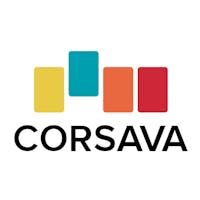The choices are overwhelming, and the stakes are high. Searching for colleges where they will thrive, students compile their lists using standard metrics—size, location, major—unaware that they are eliminating some great options.
Unfortunately, this means that a lot of students end up at colleges that don’t work out for them. Six-year college graduation rates are now hovering at 60 percent. With the current approach, poor retention and graduation rates are no surprise.
From NACAC: "The sad fact is that only 1 in 5 high school students is enrolled in a school where there is a sufficient amount of school counselors. This means there are 11 million high school students who are enrolled in a school without enough school counselors."
Flip the Narrative, Start with the Student
The first time I met with students at a local public high school, I struggled. Eliciting responses takes work, especially when talking to teenagers. I needed to understand what was important to each one, help them find a place where they would connect with professors, engage in activities they love, build friendships, and discover fields of study that resonated—a place where they could be happy.
Hitting on an idea, I began to build a list of attributes to help students think more deeply and discover those aspects of college that are rarely thought about but may be key to success. I created a card with an image for each attribute to help spark conversations. Students sorted the cards into four separate piles: Must Have, Would Be Nice, Don’t Care and No Way.
Students explore their preferences for campus and educational culture, residential life, student resources, academics and extracurricular life.

Helping students think more deeply about what matters to them before launching into the college selection process saves time, builds focus and keeps things positive. For many of these students, this was the first time they were being asked what was important to them. Their sense of relief was palpable.
Renee Ferrerio at The O'Neal School in North Carolina commented that for their Must Haves, students often say they want to go to a large university but prefer small classes and access to professors. A discussion follows, and she adjusts their lists accordingly.
Susan Chiarolanzio at Flint Hill School in Virginia said that it used to take four hours to get clarity on what students wanted. Now, she engages students right from the start because Corsava includes so many things that students would never think of during their conversations.
Belinda Wilkerson sorting Corsava cards with her student.

Lynne Bossart, a college counselor at The Legacy Foundation of Hartford, likes the conversation that the Big Fish in the Little Pond card generates, while the Liberal Arts card provides a good launching-off point to teach students just what this could mean for them.
Danica Moss, a counselor at Steamboat Springs High School in Colorado, found it interesting that parents who assume they know their child well are often surprised by the card choices, prompting important conversations at school and at home.
Each student is unique. The following images represent individual students, where color is their deeper preferences, and shape is Corsava's recommended college locations. Corsava has over 3.2 million student preferences driving our college recommendations.



Emotional Metrics Powering College Lists
Last fall, the Stanford School of Education, in conjunction with Challenge Success, announced the results of the study A Fit Over Rankings, Why College Engagement Matters More Than Selectivity. They reviewed the research and found that what students do in college matters much more than where they go. Engagement in academic and campus community is key, and identifying what matters most to students elevates the college search process.
This study provided important validation to our work. As Corsava built a platform to have counselors rate these more emotional metrics (our cards), students could use their deeper preferences—rather than rankings—to discover places where they would thrive. Machine learning tools were becoming more readily available, and I knew that it was time to close the loop.
Building the college recommendation algorithm and weighting cards based on how they relate to student success are both informed by years of counseling experience. College impressions and comments by independent educational consultants and high school counselors, student ratings and publicly available data sources like IPEDs combine to fuel our personalized college suggestion engine and refine lists. In the future, Corsava will offer personalized recommendations for everyone, not just those pursuing four-year degrees, to meet the needs of the quickly evolving educational space.
Card rating data overlaid on college locations, Corsava has over 120,000 ratings powering our college lists.

Good counseling is important, impactful and intuitive work built on years of experience visiting campuses and tracking student outcomes. It is hard to replicate using technology, but we are taking the first steps to reach students regardless of their location or level of support and help them think about the “Why” of college from the start. I remind my students that the college process is supposed to be fun. Once they know their path, they can focus more on what they will do once they are there. Every student should have this opportunity.



